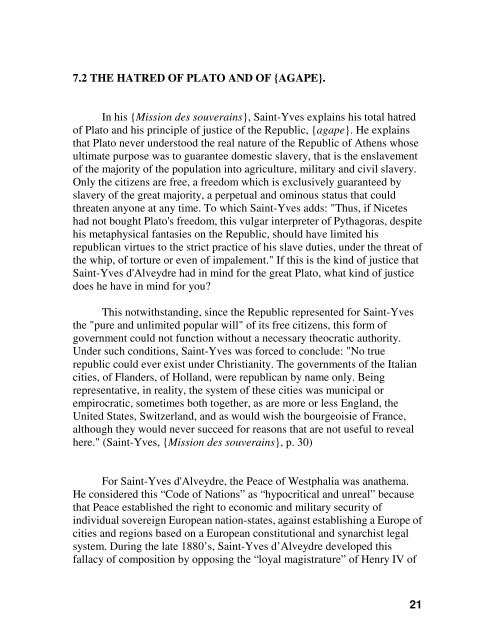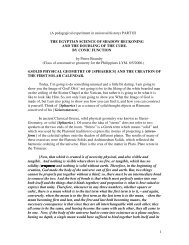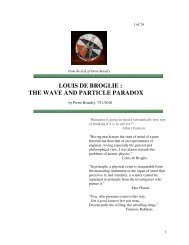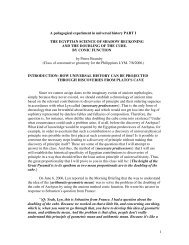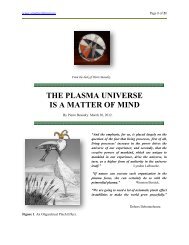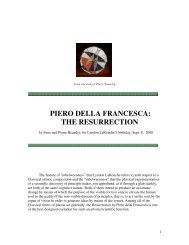synarchy movement of empire book ii - Pierre Beaudry's Galactic ...
synarchy movement of empire book ii - Pierre Beaudry's Galactic ...
synarchy movement of empire book ii - Pierre Beaudry's Galactic ...
You also want an ePaper? Increase the reach of your titles
YUMPU automatically turns print PDFs into web optimized ePapers that Google loves.
7.2 THE HATRED OF PLATO AND OF {AGAPE}.<br />
In his {Mission des souverains}, Saint-Yves explains his total hatred<br />
<strong>of</strong> Plato and his principle <strong>of</strong> justice <strong>of</strong> the Republic, {agape}. He explains<br />
that Plato never understood the real nature <strong>of</strong> the Republic <strong>of</strong> Athens whose<br />
ultimate purpose was to guarantee domestic slavery, that is the enslavement<br />
<strong>of</strong> the majority <strong>of</strong> the population into agriculture, military and civil slavery.<br />
Only the citizens are free, a freedom which is exclusively guaranteed by<br />
slavery <strong>of</strong> the great majority, a perpetual and ominous status that could<br />
threaten anyone at any time. To which Saint-Yves adds: "Thus, if Nicetes<br />
had not bought Plato's freedom, this vulgar interpreter <strong>of</strong> Pythagoras, despite<br />
his metaphysical fantasies on the Republic, should have limited his<br />
republican virtues to the strict practice <strong>of</strong> his slave duties, under the threat <strong>of</strong><br />
the whip, <strong>of</strong> torture or even <strong>of</strong> impalement." If this is the kind <strong>of</strong> justice that<br />
Saint-Yves d'Alveydre had in mind for the great Plato, what kind <strong>of</strong> justice<br />
does he have in mind for you?<br />
This notwithstanding, since the Republic represented for Saint-Yves<br />
the "pure and unlimited popular will" <strong>of</strong> its free citizens, this form <strong>of</strong><br />
government could not function without a necessary theocratic authority.<br />
Under such conditions, Saint-Yves was forced to conclude: "No true<br />
republic could ever exist under Christianity. The governments <strong>of</strong> the Italian<br />
cities, <strong>of</strong> Flanders, <strong>of</strong> Holland, were republican by name only. Being<br />
representative, in reality, the system <strong>of</strong> these cities was municipal or<br />
empirocratic, sometimes both together, as are more or less England, the<br />
United States, Switzerland, and as would wish the bourgeoisie <strong>of</strong> France,<br />
although they would never succeed for reasons that are not useful to reveal<br />
here." (Saint-Yves, {Mission des souverains}, p. 30)<br />
For Saint-Yves d'Alveydre, the Peace <strong>of</strong> Westphalia was anathema.<br />
He considered this “Code <strong>of</strong> Nations” as “hypocritical and unreal” because<br />
that Peace established the right to economic and military security <strong>of</strong><br />
individual sovereign European nation-states, against establishing a Europe <strong>of</strong><br />
cities and regions based on a European constitutional and synarchist legal<br />
system. During the late 1880’s, Saint-Yves d’Alveydre developed this<br />
fallacy <strong>of</strong> composition by opposing the “loyal magistrature” <strong>of</strong> Henry IV <strong>of</strong><br />
21


